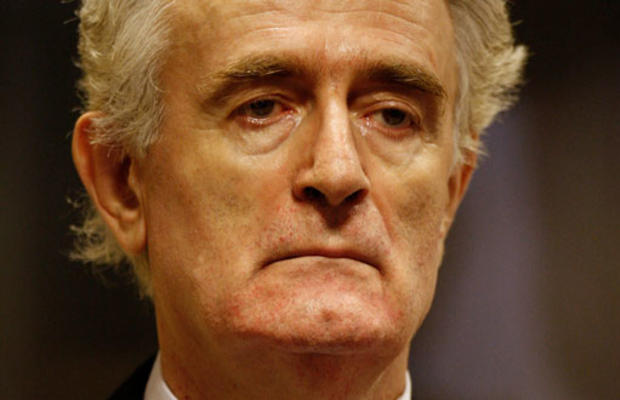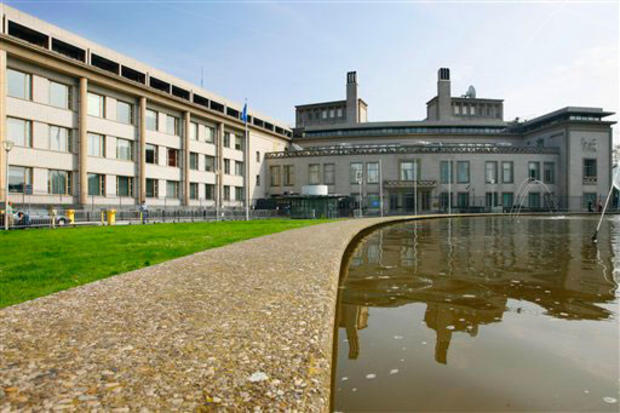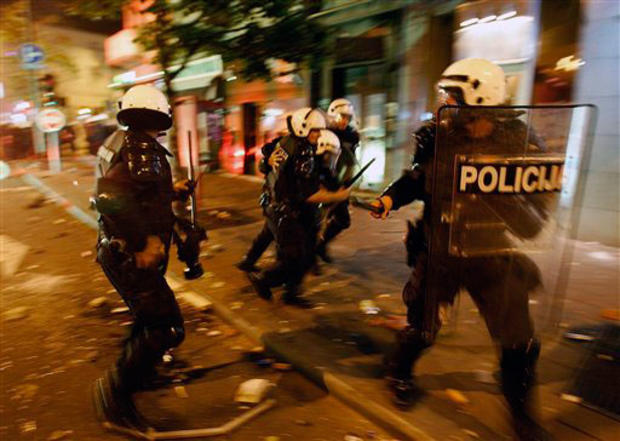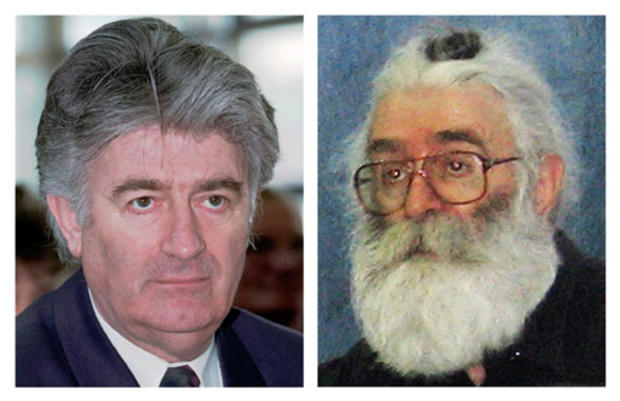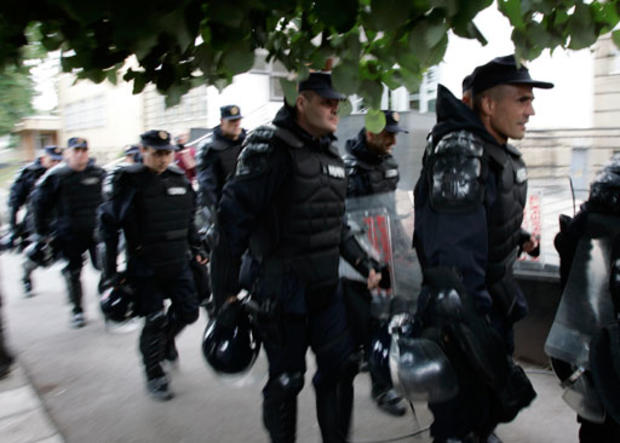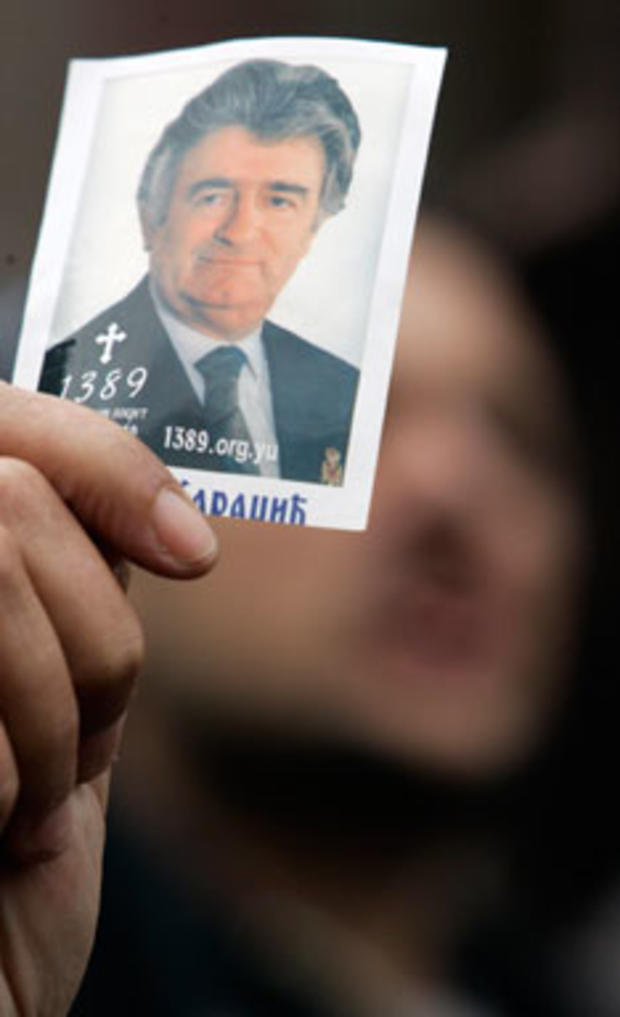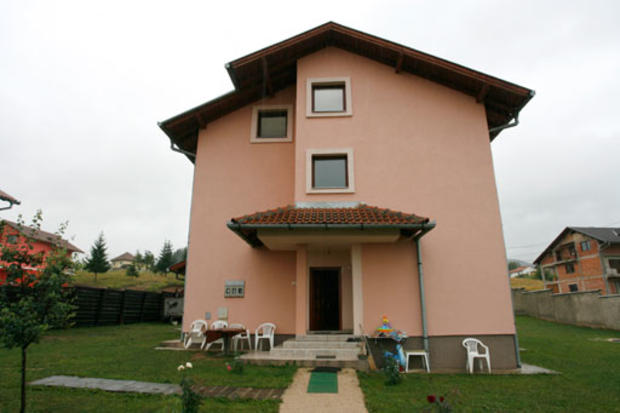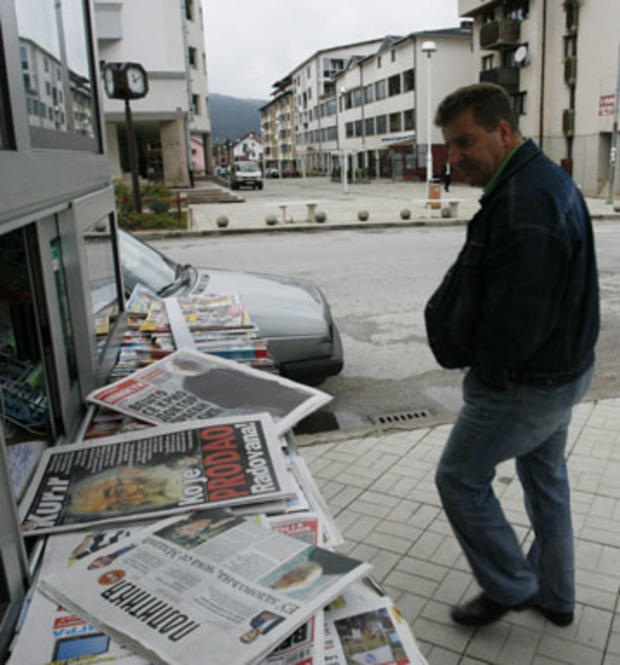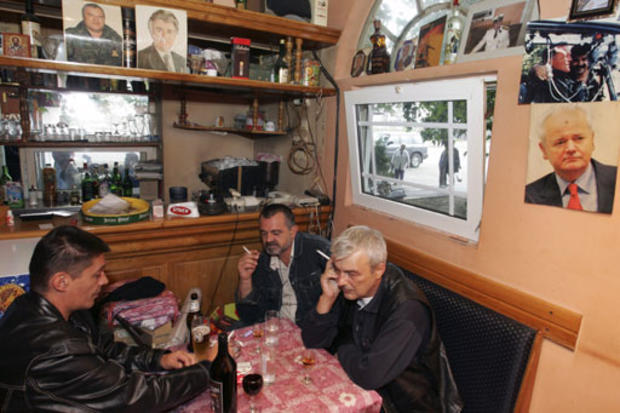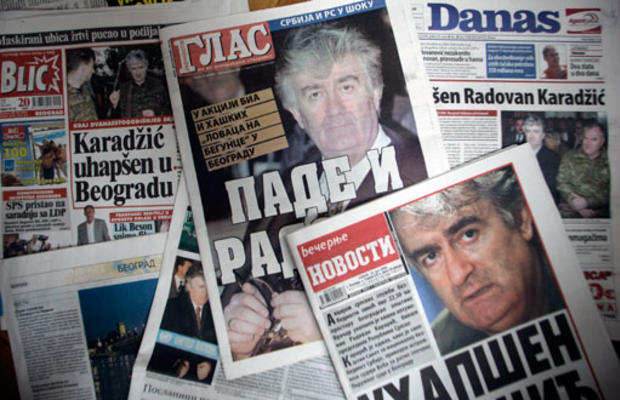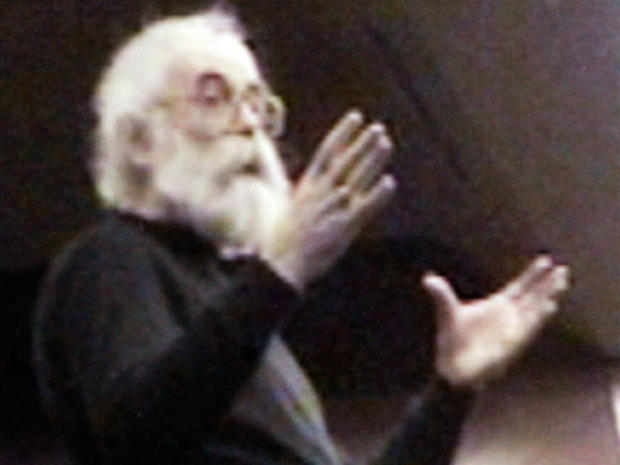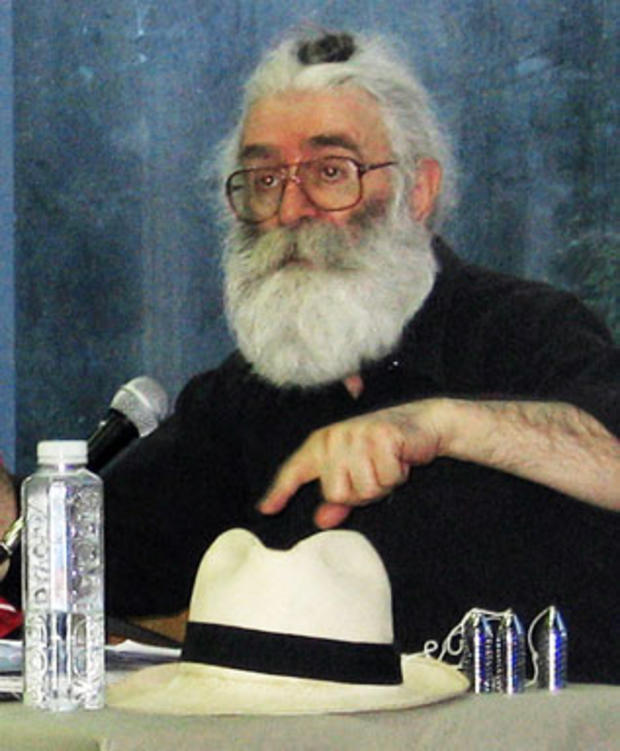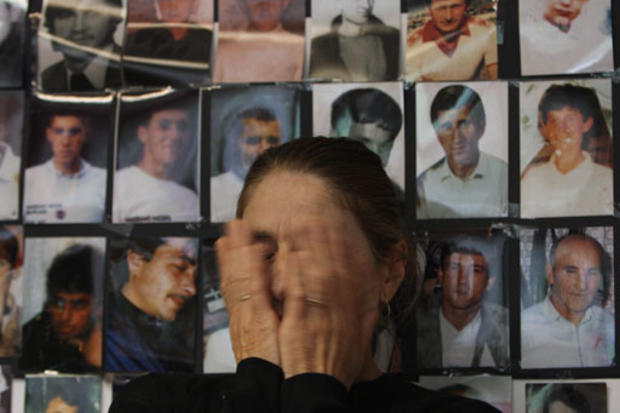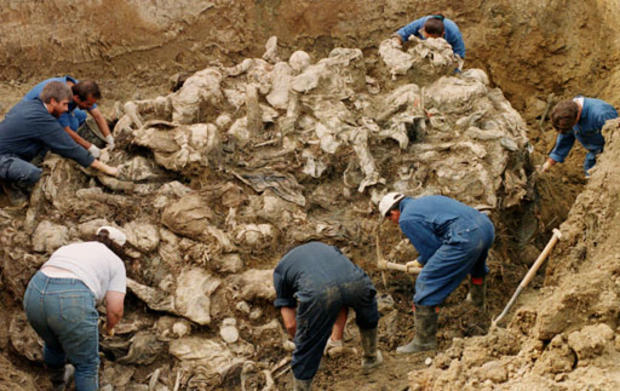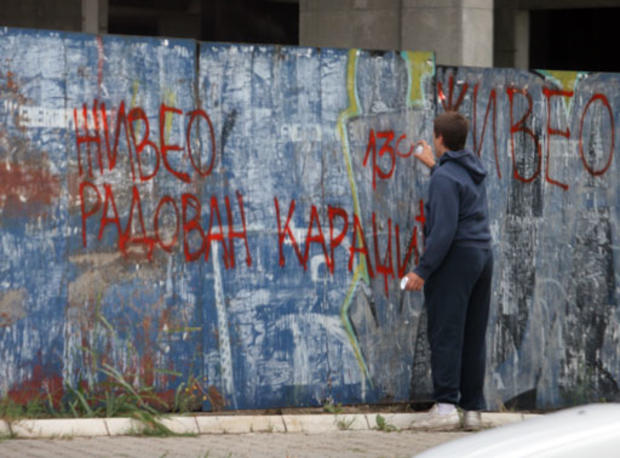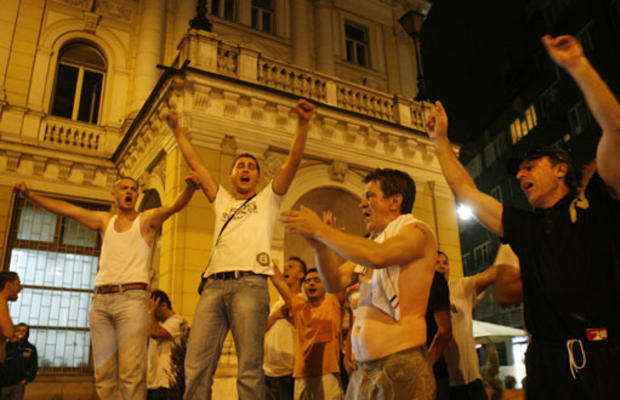Karadzic: Guilty of war crimes
Once the world's most wanted man, the former Bosnian Serb leader Radovan Karadzic has been found guilty of crimes against humanity by U.N. judges and sentenced to 40 years in prison, March 24, 2016.
Judges at the International Criminal Tribunal in The Hague ruled on 11 charges, including one count of genocide in parts of Bosnia. The court has yet to rule on a count of genocide in Srebrenica, the worst atrocity seen in Europe since World War II. The 1995 Srebrenica massacre involved the deaths of around 8,000 Muslim men and boys.
Karadzic is one of the notorious figures of the Bosnian War. Former Serbian President Slobodoan Milosevic died in custody and Ratko Mladic, who was commander of Serb forces in Srebrenica, is still in jail at the tribunal awaiting sentencing.
More Photos: The 20th anniversary of the Srebrenica massacre
Karadzic stands in the courtroom, where he refused to enter a plea, during his initial appearance at the U.N.'s Yugoslav war crimes tribunal in The Hague, Netherlands, July 31, 2008. Karadzic appeared to face charges of genocide and crimes against humanity. Prosecutors allege he masterminded atrocities, including the Srebrenica massacre and siege of Sarajevo, during Bosnia's 1992-95 war.
Radovan Karadzic
The exterior of the U.N. war crimes tribunal for former Yugoslavia in The Hague, Netherlands, Wednesday, July 30, 2008. The court announced that former Bosnian Serb leader Radovan Karadzic will be summoned before a judge Thursday and asked to enter a plea on each of 11 counts, including genocide, extermination and persecution.
Radovan Karadzic
Police officers help an injured colleague during clashes with protesters following an anti-government rally in support of Bosnian Serb war crimes suspect Radovan Karadzic, in central Belgrade, July 29, 2008. Police fired tear gas and rubber bullets at stone-hurling extremists as ultra-nationalists protested the government's plans to extradite ex-Bosnian Serb leader Radovan Karadzic to the U.N. war crimes tribunal.
Radovan Karadzic
Former Bosnian Serb leader Radovan Karadzic, left, is shown in April 1996 during a Bosnian Serb assembly session.
On the right, he's shown in an undated photo at an undisclosed location in Belgrade with glasses, long white hair and a beard. The accused architect of war crimes, including Europe's worst massacre since World War II, was arrested Monday evening, July 21, 2008, after 11 years on the run. He was in disguise and working as a doctor at the time of this arrest.
Radovan Karadzic
Serbian police patrol past the special war crimes court where war crimes suspect Radovan Karadzic is being held, in Belgrade, Serbia, Wednesday, July 23, 2008.
Radovan Karadzic
A woman holds a picture of ex-Bosnian Serb leader Radovan Karadzic during a protest rally, in Belgrade, Serbia, Wednesday, July 23, 2008. Karadzic was arrested near Belgrade in a sweep by Serbian security services.
Radovan Karadzic
The home of Radovan Karadzic's wife Ljiljana in Pale, near Sarajevo, is shown July 23, 2008.
Ljiljana Zelen-Karadzic was informed of the arrest of her husband in Belgrade and said, in a statement over the phone to the AP, she was shocked, but at least now she knows he is alive.
Radovan Karadzic
A Serb man looks at newspaper headlines in Pale, on Wednesday, July 23, 2008, with headlines reading "Karadzic is arrested."
Pale was a war-time stronghold of genocide suspect Radovan Karadzic.
Radovan Karadzic
Guests sit and drink in a bar called Madhouse, where war crimes suspect Radovan Karadzic is now known to have frequented -- and where his photo hangs on the wall -- in Belgrade, Serbia, Wednesday, July 23, 2008.
New details emerged about his secret life, including a new wife, and a bogus family in the U.S.
Radovan Karadzic
The front pages of Serbian newspapers shows pictures of Radovan Karadzic and headlines reading: "Arrested," as published in Belgrade, Serbia, Tuesday, July 22, 2008. Karadzic is a top war crimes suspect.
Radovan Karadzic
An undated photo of Radovan Karadzic with glasses, long white hair and a beard. One of the world's most-wanted fugitives, Belgrade media said Wednesday, July 23, 2008, that his alias, "Dr. Dragan David Dabic," was taken from a Bosnian Serb who died in Bosnia's capital in 1993 during the war.
Radovan Karadzic
An undated photo released by Belgrade's "Healthy Life" magazine Tuesday, July 22, 2008, shows former Bosnian Serb leader Radovan Karadzic with glasses, long white hair and a beard. Editor-in-chief Goran Kojic said he was shocked when he saw the photo of Karadzic on TV, recognizing him as a regular contributor to the publication.
Radovan Karadzic
A Bosnian Muslim woman, a survivor of the Srebrenica massacre, reacts as she listens to news of the arrest of war crimes fugitive Radovan Karadzic next to dozens of photos of Srebrenica citizens who went missing after the safe U.N. enclave fell into Bosnian Serb hands on July 1995, at the Association of Srebrenica widows in Tuzla, 70 kms north of Sarajevo, on Tuesday, July 22, 2008.
Radovan Karadzic
International War Crimes Tribunal investigators clear away soil and debris from dozens of Srebrenica victims buried in a mass grave near the village of Pilica, 32 miles northeast of Tuzla, Sept. 18, 1996.
Radovan Karadzic topped the tribunal's most-wanted list for more than a decade charged with organizing the deadly siege of Sarajevo and the 1995 massacre of around 8,000 Muslims in the U.N. safe area of Srebrenica.
Radovan Karadzic
A young man sprays graffiti on a wall reading "Long live Radovan Karadzic" in Belgrade, Serbia, Tuesday, July 22, 2008. Karadzic's whereabouts had been a mystery since he went underground in 1998. His various hideouts reportedly included monasteries in native Montenegro and mountain caves in remote eastern Bosnia.
Radovan Karadzic
Residents of Sarajevo celebrate early on Tuesday, July 22, 2008, after news that Radovan Karadzic was arrested in Belgrade.
Karadzic and his military commander Ratko Mladic are seen as the main culprits of the Bosnian 1992-95 war that claimed some 100,000 lives. The two men are indicted over the Sarajevo siege during which up to 11,000 people were killed and the Srebrenica genocide of around 8,000 Muslim men and boys.
